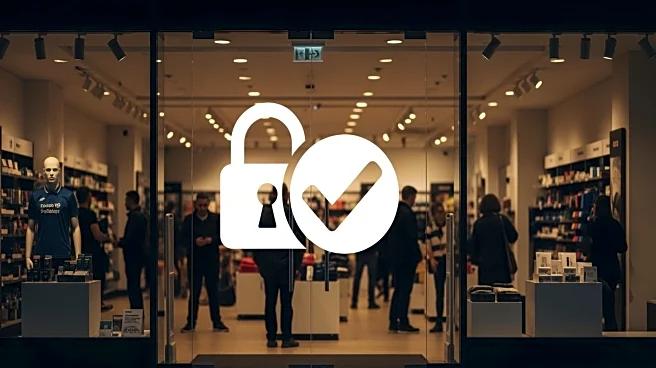What's Happening?
Retailers are facing significant challenges due to off-site verification processes that are negatively impacting customer conversions. According to Stephanie Copeland Weber, CEO of SheerID, redirecting customers to third-party verification platforms disrupts
the consumer experience, leading to reduced conversions and potential compliance risks. The friction caused by these additional steps can lower return on investment (ROI) and damage brand trust, as consumers are increasingly concerned about data privacy. The Baymard Institute reports a 70% cart abandonment rate, with friction during checkout being a major factor. Additionally, off-site verification exposes brands to data security risks, with the average cost of a data breach in retail being $3.36 million. This process can also weaken the emotional connection between brands and consumers, as it involves another brand's messaging.
Why It's Important?
The implications of off-site verification are significant for the retail industry, as it affects both financial performance and customer relationships. Brands risk losing revenue due to decreased conversions and increased costs associated with data breaches. Furthermore, consumer trust is fragile, and mishandling data can lead to penalties under regulations like GDPR and CCPA. Maintaining a seamless, in-brand verification process is crucial for building trust and engagement, which can enhance customer loyalty and lifetime value. Retailers need to address these issues to protect their brand reputation and ensure compliance with data protection laws.
What's Next?
Retailers are encouraged to integrate in-brand verification processes to streamline customer experiences and reduce compliance risks. By keeping verification on-site, brands can maintain control over the customer journey, fostering emotional connections and increasing profitability. This approach can help retailers leverage exclusive offers to grow their business and retain key customers. As data privacy concerns continue to rise, retailers must prioritize secure and transparent opt-in experiences to build lasting relationships with consumers.
Beyond the Headlines
The shift towards in-brand verification reflects broader trends in consumer expectations for privacy and seamless digital experiences. As technology evolves, retailers must adapt to meet these demands, which may involve investing in new systems and processes. The focus on data security and customer trust highlights the ethical responsibilities of brands in handling personal information. Long-term, this could lead to industry-wide changes in how customer data is managed and protected.
















